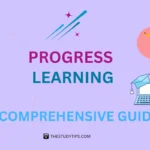Did you know? We humans forget about 75% of what we learn within just 6 days? Yes, It is called “Forgetting Curve”. This idea was introduced by Hermann Ebbinghaus, a German psychologist, way back in the 19th century. It explains why it is easy to forget information if it is not reviewed or applied consistently. This often leads to frustration and reduce in motivation to study.
Staying motivated to study feels like trying to keep a flame alive in a storm. Some days you’re all in, but other days, distractions and low energy make it hard to focus. But here’s the cool part: It’s not tough to stay motivated as you might think.
We’ve got 10 game-changing strategies to help you stay motivated. These strategies not only help you build solid study habits but also ensure you remember more of what you learn. From smarter study schedules to mind blowing tricks like spaced repetition, these study tips are designed to level up your study game.

Table of Contents
ToggleWhy Do I Lack Motivation to Study?
The first step to fixing the motivation struggle is to understand why we don’t feel motivated to study. Life is full of distractions and challenges, and sometimes it feels like there’s no point in trying. So, figuring out the reason behind your loss of motivation is the first step to getting back on track.
Studies show that mental health plays a vital role in how motivated we feel. Research points out that depression leads to decreased academic achievement and anxiety is like a double edged sword, which sometimes boosts motivation at a lower level, but reduces when it gets too high.
Here are the biggest factors that mess up our motivation to study.
- Feeling Overwhelmed :
When the study materials feel like too much. - Lack of Interest :
Sometimes, it’s hard to see the point of what we’re learning right away. - Mental Fatigue :
Procrastinating eats up our energy, and traps you in the loop of low motivation. - Learning Difficulty :
The study material can either be too easy or too hard to stay focused. - External Pressure :
Family Problems, Relationship dramas, or money stress ends up taking over our thoughts. - Low Self Esteem :
Struggling with confidence has a huge impact on our motivation to study. - Living In Isolation :
Feeling alone deprives you from support system, accountability, and a sense of correction. - Fear of Falling Short :
The anxiety of not meeting high expectations can lead to avoidance and a lack of effort.
Knowing about these factors can help us see the reason behind our lack of motivation. It’s not our fault to feel that way since it’s normal with every human. Once we spot what’s eating away our motivation, we can tackle these challenges and find the right solutions for it.

10 Proven Strategies to Get Motivation to Study
Let me share ten proven strategies that will help you overcome study challenges and boost your motivation. These methods come from both research and real experience. They’re reliable tools you can use on your learning trip.
Strategy #1: Set Study Goals
Clear, achievable goals keep you focused and motivated. The SMART framework (Specific, Measurable, Achievable, Relevant, Time-bound) helps you create goals that work for your study sessions. To cite an instance, rather than saying “I want to do well in my online classes,” set a specific goal like “Complete Modules 1 and 2 by Friday”.
Strategy #2: Create a Study Schedule
A well-laid-out study schedule helps you manage time better. Research shows that a regular study schedule lets your brain develop better study habits. You should break your study sessions into 30 to 45-minute blocks. These shorter blocks are easier to handle and stick with.
Strategy #3: Finding Purpose and Passion
Purpose gives you meaning and guides your life choices. Students who connect their studies with deeper purpose develop stronger motivation. Research shows you can build purpose by participating in campus activities, spending time with mentors, or experiencing meaningful events.
Strategy #4: Find a Study Group
Study groups are a great way to get the most from your learning trip. Students learn faster in groups than alone. You’re also less likely to put off assignments when others count on you.
Strategy #5: Think About What Motivates You
Your personal motivators play a vital role in keeping your study momentum going. These motivations express what matters to you and what you value. Ask yourself:
- What makes you feel good about learning?
- What fascinates you about your subjects?
- What pushes you toward your goals?
Strategy #6: Gamify Your Study Sessions
Games make study sessions fun. Research shows that adding game elements like rankings, levels, points, rewards, and badges can boost student motivation. These elements improve knowledge retention and student engagement.
Strategy #7: Try the “Two-Minute Rule”
The Two-Minute Rule says new habits should take less than two minutes. For studying, this could mean:
- Reading one page
- Opening your notes
- Writing one paragraph
Strategy #8: Try Using The Pomodoro Technique
The Pomodoro Technique keeps you focused and manages your time well. Here’s how it works:
- Set a timer for 25 minutes of focused study
- Take a 5-minute break
- Repeat this cycle four times
- Take a longer 20-minute break
Strategy #9: Find your Why
Your “why” keeps you motivated for the long haul. Research shows that purpose reduces negative emotions and increases positive ones. Take time to reflect on what drives you and how your studies can help you change the world.
Strategy #10: Celebrate Progress
Small wins matter. Research shows that celebrating small achievements builds confidence and keeps you going toward bigger goals. Reward yourself for hitting study milestones. This creates positive connections with learning.
Frequently Asked Questions
How can I overcome procrastination and start studying?
Try the “Two-Minute Rule” by starting with a small, two-minute task related to studying. This could be reading one page, opening your notes, or writing a single paragraph. This technique helps overcome initial resistance and can lead to longer study sessions.
What's an effective way to manage study time?
The Pomodoro Technique is a proven method for managing study time. Set a timer for 25 minutes of focused study, followed by a 5-minute break. Repeat this cycle four times, then take a longer 20-minute break. This technique helps maintain focus and prevents burnout.
How can I make studying more engaging?
Consider gamifying your study sessions. Incorporate elements like points, levels, or rewards for completing study tasks. This approach can enhance motivation, improve knowledge retention, and increase overall engagement with the material.
What should I do if I feel overwhelmed by my studies?
Set clear, achievable goals using the SMART framework (Specific, Measurable, Achievable, Relevant, Time-bound). This helps break down overwhelming tasks into manageable chunks and provides a sense of direction and accomplishment.
How can I maintain long-term motivation for studying?
Find your “why” by connecting your studies to your deeper purpose and long-term goals. Regularly reflect on what drives you and how your education contributes to the changes you want to make in the world. This sense of purpose can lead to fewer negative emotions and more positive ones, helping maintain motivation over time.











2 Responses
I found out a lot from this post, here you mentioned “forgetting curve” but I can’t seem to find any post here related to it.
The Forgetting Curve highlights the importance of consistently reviewing and applying knowledge. While this post briefly touches on the concept, I’ll be publishing a detailed post about it soon, so stay tuned! Also to stay updated with our latest posts, consider subscribing to our newsletter. You’ll receive instant notifications about all our new content. 😊
Thank you